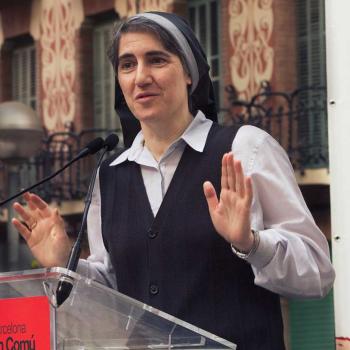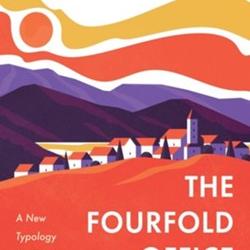
Prior to the flood, which took place in the days of Noah, most biblical figures lived rather long lives. The Bible gives no explanation for this longevity, but it consistently highlights it in the lives of those living in the antediluvian era.
Methuselah
The individual who is said to have lived the longest (in the Bible) was Methuselah, the son of Enoch and the father of Lamech (two men who themselves enjoyed significant longevity). According to the biblical account, Methuselah lived an incomprehensible 968 years. (Genesis 5:27)
Jared
Jared is said to have been a sixth-generation grandson of Adam and Eve, and the grandfather of Methuselah. According to the biblical text, Jared lived only six years less than his grandson, reaching the ripe old age of 962. (Genesis 5:20)
Noah
Noah was one of the most famous of the Bible’s longest living figures. While most in Noah’s day died a pre-mature death because of the flood, he and his immediate family are said to have survived that deluge (by holding up in the ark that Noah and his family had built). As a consequence, Noah—who was Methuselah’s grandson—was preserved from drowning, and the famed ‘savior of the animals’ lived some 950 years. (Genesis 9:29)
Adam
The Bible describes Adam as the father of the human race. The book of Genesis tells us that Adam lived 930 years, “and he died” (Genesis 5:5). Some have highlighted that God told Adam “in the day that thou eatest” of the “fruit” of the “tree of knowledge of good and evil” “thou shalt surely die” (Genesis 2:17). And yet, Adam lived nearly a thousand years after partaking of that “forbidden fruit.” It is sometimes pointed out that 2 Peter 3:8 claims, “that with the Lord one day is as a thousand years [for humans], and a thousand years [for humans is] as one day” for God. (See also Psalm 90:4) If we can put any credence in the idea that a thousand years in our time is like a day to God, then Adam—who lived 930 years—died in the “day” that he partook of the “forbidden fruit,” having passed away prior to his thousandth birthday.
Seth
Seth was one of Adam’s sons; presumably the third (after Cain and Abel). Seth was also said to be in his father’s “likeness” (Genesis 5:3). Beyond apparently looking like his dad, Seth enjoyed his father’s longevity, being the next oldest man in the Bible, having lived 912 years. (Genesis 5:8)
Cainan
While we don’t know much about Cainan, we do know that he was the grandson of Seth and, thus, the great-grandson of Adam and the great-great-grandson “of God” Luke 3:38). The Bible tells us that Cainan lived a total of 910 years. (Genesis 5:14).
Enos
Enos was the first son of Seth, who was Adam’s third son. According to the Bible, Enos lived long enough that his life overlapped the lives of both Adam and Noah. Enos lived a total of 905 years. (Genesis 5:11)
Mahalaleel
Mahalaleel was a fifth-generation grandson of Adam. He was the son of Cainan and the father of Jared—both of which lived extremely long lives. According to the Bible, Mahalaleel lived 895 years. (Genesis 5:17)
Lamech
Noah’s father was Lamech. He fathered the future ‘sailor’ when he was 182-years of age, and he called his newborn son “Noah,” which means “rest.” Perhaps Lamech had some measure of inspiration, feeling that his infant son would live to see the earth achieve an era of “rest” after its many years of extreme wickedness. Lamech lived a total of 777 years. (Genesis 5:31)
Enoch
Enoch was the father of Methuselah, who was the oldest man to ever live. Enoch only lived 365 years—long by our day’s standards, but significantly short when compared to those of his day. However, Enoch is unique in that he is one of the oldest people in the Bible, but he is also one of the only people that the Bible specifically states was “taken” up to God without dying—“Enoch walked faithfully with God; then he was no more, because God took him away” (Genisis 5:25). Had Enoch not been “take up” into God’s presence, one can only conjecture how old this longevous prophet would have lived to be. Technically, since Enoch never died, today he would be (by biblical counts) nearly six thousand years old. So, while we always call Methuselah the oldest man to ever live, we might want to remember that Enoch didn’t die. He just moved to a new realm during his fourth century of life.
Why the Antediluvian Longevity
We’ve discussed above the ten longest living men that are mentioned in the Bible. However, it is worth noting that, in the years following the flood, there was a precipitous decline in lifespan. So, whereas Methuselah lived 968 years, Moses indicated that—in his day—70 years was the life expectancy of most people (Psalm 90:10). So, why did people prior to the flood live so long? Well, some conjecture it was because disease had not entered the world yet. Others have reasoned that God needed people to live to an older age so that they could reproduce over hundreds of years in order to ensure the viability of society. Some have argued that lifestyle had a lot to do with biblical longevity. Others have wondered if some sort of reverse progeria was in force—causing people to age ten or eleven times slower than normal (rather than ten/eleven times faster, as with traditional cases of Werner Syndrome). Some think the ages in the Bible are simply symbolic, and not intended to be taken as literal.
In the end, the Bible never says why many prior to the flood lived to be so old. It simply states as a matter of fact that it happened, and that Methuselah—at 968 years—was the oldest man ever.
2/3/2022 6:57:43 PM








